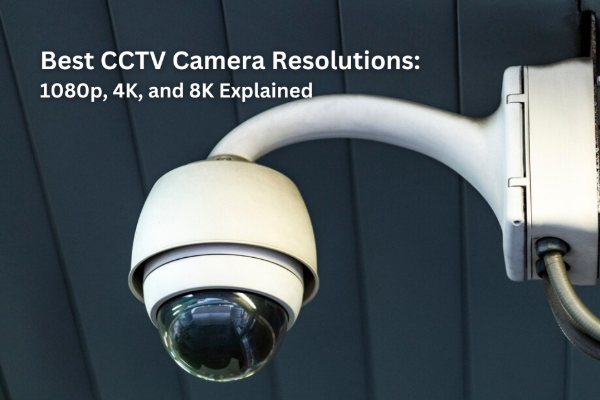When it comes to choosing a CCTV camera for home or business security, resolution plays a crucial role. Higher resolution means clearer images, but what do terms like 1080p, 4K, and 8K really mean? This guide will help you understand CCTV camera resolution and how to choose the right one for your needs.

What Is CCTV Camera Resolution?
CCTV camera resolution refers to the number of pixels in an image. The more pixels, the sharper and more detailed the video footage. Resolution is typically measured in pixels, represented as width × height. The most common resolutions used in security cameras are 1080p (Full HD), 4K (Ultra HD), and 8K (Super UHD).
Comparing 1080p, 4K, and 8K Resolutions

1080p CCTV Cameras
Most common and affordable option.
Suitable for general home security and small business use.
Provides clear video, but may lack detail when zooming in.
4K CCTV Cameras
Four times the resolution of 1080p.
Offers high detail, making it ideal for large properties, retail stores, and offices.
Requires more storage space and higher bandwidth for streaming.
8K CCTV Cameras
Delivers extremely sharp images with unparalleled detail.
Useful for facial recognition and forensic investigations.
Very expensive and requires advanced hardware for storage and streaming.
Do You Need 4K or 8K CCTV?
While 1080p is still widely used, many businesses and homeowners are upgrading to 4K CCTV cameras for better clarity and security. 8K cameras are mainly used for government or high-end commercial security but are not yet necessary for general consumers due to high costs and storage demands.
Factors to Consider When Choosing a Resolution
- Budget: Higher resolutions cost more in terms of equipment and storage.
- Storage Needs: 4K and 8K require larger hard drives or cloud storage.
- Internet Bandwidth: If using cloud storage, ensure your internet speed can handle large video files.
- Use Case: A small home may not need 4K, while a business may benefit from the added detail.
Conclusion
Choosing the right CCTV resolution depends on your security needs, budget, and storage capabilities. 1080p is great for basic security, 4K provides superior detail, and 8K is for high-end surveillance applications. Understanding these resolutions will help you make an informed decision.
